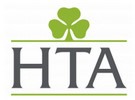There will be no inspections of plants or plant products at UK border control posts between January and July next year confirms the Horticultural Trades Association (HTA), following ongoing discussions with the Department of Environment, Food and Rural Affairs (Defra) over the new EU Border Operating Model. The Government is expected to publish an updated Border Operating Model shortly. However, this is the start of key changes needing to be realised as the industry looks for certainty and a fair trading environment in which to operate within after the UK has left the European Union (EU).
With a recent HTA survey conducted with leading ornamental horticulture businesses suggesting that the costs incurred by the new model could represent 15-20% of their net profits, the HTA launched a new lobbying campaign to represent industry concerns.
Delays at ports would put at risk the perishable products that are vital to the backbone of the UK garden industry, in addition to a better understanding needed for how the various IT systems would work to manage the new import process.
The HTA campaign is focused on working with Government to better ascertain the level of risk involved for the trade in plants and reducing the burden and cost on the industry in any new post-EU trade system.
Engagement with MPs to raise the profile of the industry’s concerns has taken place and is planned in as the HTA looks to step up its activity. Alignment with other organisations with similar interests is part of the approach as well.
The HTA has been working closely with Defra. Issues around the costs of phytosanitary certificates, delays due to physical border inspections, recertification and inspection cross-border with Northern Ireland and Ireland, choice of ports and IT systems are areas of detailed discussion.
The modifications to the guidelines will mean that all plants in the current EU plant passport scheme, previously designated ‘high risk plants’ will now be referred to as ‘priority plants’ and will not have to pass through a Border Control Post. Instead inspections will take place at the consignment’s destination, if deemed necessary.
The revised guidelines will bring some short-term relief for HTA members on the previous version of the Border Operating Model, and will include the following:
- no plants or plant products will be required to pass through a border control post between January and July 2021.
- customs declarations can be deferred for all plants and plant products up to July.
- phytosanitary certificates and pre-notification will be required for all plants for planting from January 2021 onwards.
There will still be a requirement for pre-notifications on the new Import of Products, Animals, Food and Feed System (IPAFFS) and consignments must be accompanied by a phytosanitary certificate, which may be inspected at the destination.
As part of the HTA’s EU Exit trade campaign has been to ensure members ‘Get Ready’ for the changes to EU trade, they’ve established a member working group, produced a series of detailed weekly briefings, including a new dedicated section on the website and will be running a webinar to help members through the differences that will need to be made.
James Barnes, Chairman of the HTA said: “We are committed to maintaining a strong biosecurity programme. We want to increase UK production to make us more resilient as a nation, but we rely on imports for those plants and plant material that we can’t produce here – some of which supports the very backbone of the UK industry. We need a balanced approach for our members.
However, key changes are still needed. We need a more balanced approach as to how cross-border plant health risk is assessed and where and when import and export inspections take place post July. We have been actively engaging with Defra to suggest a range of solutions, including a ‘Trusted Trader’ scheme of certification and inspection for example. We will work with Government on the range of detail on how the border will operate for plant imports and exports. We are seeking clarity on how trade with Northern Ireland will work”.
For more information Horticultural Trades Association
Horticultural Trades Association
Horticulture House
19 High Street
Theale
Reading
West Berkshire
RG7 5AH
T: +44 (0)118 930 3132
Fax: +44 (0)118 932 3453
NGGV: +44 (0)118 930 2092
www.the-hta.org.uk
